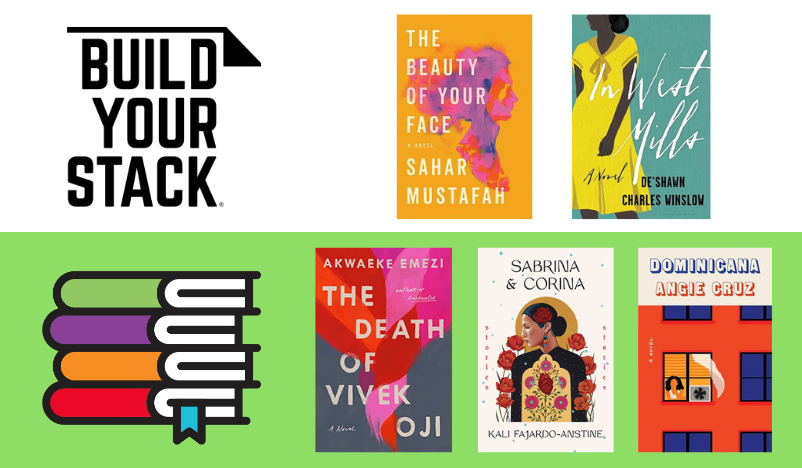This post was written by NCTE member Nawal Qarooni Casiano. It’s part of Build Your Stack,® an NCTE initiative focused exclusively on helping teachers build their book knowledge and their classroom libraries. Build Your Stack® provides a forum for contributors to share books from their classroom experience; inclusion in a blog post does not imply endorsement or promotion of specific books by NCTE.
I have to admit something, albeit a little nervously. There are times when I let the dishes stack up throughout the day, and I ignore the chaos of my home. There are times when I shut my ears to my kids running circles around the dining table, not really looking up unless they make too loud a sound.
Those times are when I am in my favorite reading spot, in our pink leather chair with a weighty throw blanket and a book, curled up like a cat.
To be immersed in an adult read is a deeply indulgent feeling. When I have uninterrupted time, there’s nothing more comforting than falling into a story—down, down, down. In the world of a novel, I feel as if I find myself anew, even as the characters are unlike me. I simultaneously forget myself and feel most myself when I’m reading.
How does this knowledge of myself as a reader make me a stronger teacher of reading? How does my love for reading shape who I am as a literacy coach?
When I worry that I am ignoring my kids to read, I remind myself that I am modeling important self-care in its place. I believe we must practice the reading moves we aim to cultivate in our kids. We cannot expect our students to love reading without modeling authentic personal passion. I know that reading adult novels leads to wide and varied conversations with my family, friends and colleagues. And, perhaps most importantly, through the diverse, culturally-affirming voices I read, I am able to push my thinking in classrooms, with teachers, and beyond.
Bridges are built between personal reading experiences and our school spaces. Central to that knowledge are these questions:
- What does the book teach me about people, groups, cultures, or ethnicities that I did not previously know?
- In what ways do I learn about my reading behaviors, particularly when a text is challenging, and how might I support students who face similar struggles?
- Are there any parts that stand out as excellent mentors for student writing?
- Has the author written anything else that I might recommend for a student, colleague or classroom?
Here are a handful of gorgeous texts—richly nuanced and culturally-affirming—that deserve exalting.
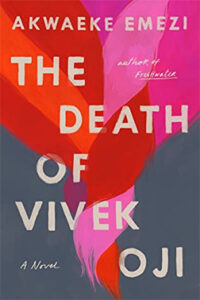 The Death of Vivek Oji by Akwaeke Emezi
The Death of Vivek Oji by Akwaeke Emezi
Gorgeous prose, an important story. Set in southern Nigeria, this crime mystery glows with Igbo colloquialisms and patterns of speech. Nothing of the traditional is watered down. The narrative keeps readers in its grasp with trips and surprises, begging for predictions page after page. It’s a story of honesty and authenticity, including a fair amount of raw sensuality, but that’s really the point. Unabashedly be who you are, even when it’s hard and dangerous. Emezi writes a perspective-shifting, bold text on the different forms of love. They also wrote PET and Freshwater for young adults.
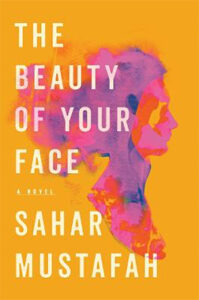 The Beauty of Your Face by Sahar Mustafah
The Beauty of Your Face by Sahar Mustafah
This story beautifully shares issues immigrants and their children feel: losing their home country, losing parts of themselves, and facing assimilation in ways that dismember the past. It faces hatred of Muslims head-on, and I appreciated that: it’s real, it’s evident at times, and it can explode. I fell in love too with this debut author’s writing style; I adored the Arabic translanguaging and expansion of Arabic culture throughout. Though I was fearful of the plot, which was centered around a school shooting, the writing craft move to include much more flashback content was brilliant. Almost as if, as readers, we couldn’t stomach too much of the present. Mustafah shares nuance for a complex Arab assimilation experience.
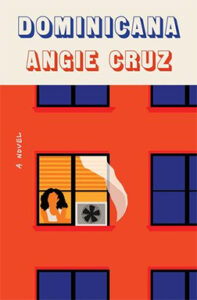 Dominicana by Angie Cruz
Dominicana by Angie Cruz
In beautiful prose, Cruz crafts a story about a 15-year-old Dominican girl forced to marry a man twice her age to help her family. With brutal honesty, she underscores all that immigrants sacrifice when leaving their countries for the United States. Because there are no quotations around the dialogue, there’s a fuzzy faraway feeling to the narrative that I imagined would dissipate as I read on, but Cruz’s words stayed with me despite that perceived distance. The pages pummeled forward with ease and I felt myself ravenous for the story’s outcome, happily not contrived. Cruz affirms Dominican identity and female strength with celebration and triumph.
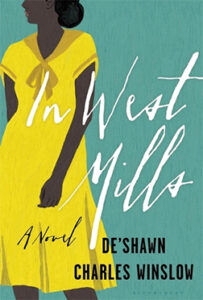 In West Mills by De’Shawn Charles Winslow
In West Mills by De’Shawn Charles Winslow
What a little gem! A fast-paced and heart-tugging debut about a Black community in North Carolina between 1941 to 1987, I just couldn’t put it down. The characters and writing style are both incredibly endearing. I wanted to share a meal with Knot and Otis Lee, thinking about them long after the last page. I am eagerly awaiting more from De’Shawn Charles Winslow.
 Sabrina & Corina by Kali Fajardo-Anstine
Sabrina & Corina by Kali Fajardo-Anstine
These short stories floored me in their lyricism, nostalgia and celebration of female resilience, as Latinas of Indigenous descent living in the American West come alive across the pages. The stories weave a relentless exaltation of heritage and ritual against a backdrop of abuse and abandonment that tugs terribly at the heartstrings but drips with beauty. Reminiscent of Sandra Cisneros, the writing style is poetic. The characters are brave. Fajardo-Anstine’s poignant collection brings historically marginalized narratives out of the shadows. Hers is an important voice.
 Nawal Qarooni Casiano is an award-winning journalist and educator with experience in New York City and Chicago schools. Forever passionate about growing readers, writers, and thinkers, Nawal was a classroom teacher, curriculum developer, and literacy coach before launching NQC Literacy in 2014. She and her team at NQC Literacy facilitate tailored professional development and staff learning experiences around literacy best practices in dozens of schools throughout Chicagoland. You can find her on Twitter @NQCLiteracy and at NQCLiteracy.com. She would love to talk to you about any of your reads!
Nawal Qarooni Casiano is an award-winning journalist and educator with experience in New York City and Chicago schools. Forever passionate about growing readers, writers, and thinkers, Nawal was a classroom teacher, curriculum developer, and literacy coach before launching NQC Literacy in 2014. She and her team at NQC Literacy facilitate tailored professional development and staff learning experiences around literacy best practices in dozens of schools throughout Chicagoland. You can find her on Twitter @NQCLiteracy and at NQCLiteracy.com. She would love to talk to you about any of your reads!
NCTE and independent bookstores will receive a small commission from purchases made using the links above.
It is the policy of NCTE in all publications, including the Literacy & NCTE blog, to provide a forum for the open discussion of ideas concerning the content and the teaching of English and the language arts. Publicity accorded to any particular point of view does not imply endorsement by the Executive Committee, the Board of Directors, the staff, or the membership at large, except in announcements of policy, where such endorsement is clearly specified.

